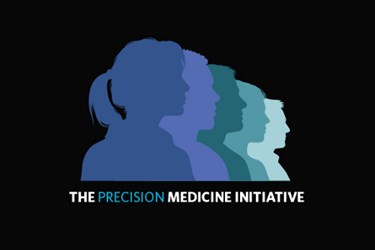Obama Unveils $215 Million Precision Medicine Initiative
By Jof Enriquez,
Follow me on Twitter @jofenriq

President Barack Obama recently announced the details of a wide-ranging plan to collect and study the genetic profiles of 1 million Americans. The initiative aims to foster the development of new drugs, medical devices, and treatments based on genetic research that could yield clues to many diseases including cancer.
According to a statement issued recently by the White House, “The Precision Medicine Initiative will pioneer a new model of patient-powered research that promises to accelerate biomedical discoveries and provide clinicians with new tools, knowledge, and therapies to select which treatments will work best for which patients.”
President Obama is seeking $215 million from Congress to fund the plan in its initial stages. The majority of funding — $130 million — will go to the National Institutes of Health (NIH), which is tasked with developing a voluntary national research cohort of 1 million or more Americans who are willing to share their genetic data with researchers.
Other key agencies will share the remainder of the funding: the National Cancer Institute (NCI) will receive $70 million to study genetic causes of cancer, the Food and Drug Administration (FDA) will get $10 million to regulate novel drugs and devices, and the Office of the National Coordinator for Health Information Technology (ONC) will get $5 million to develop interoperability standards and ensure health data privacy and security.
President Obama recently met with congressional leaders to drum up support for the initiative. Among those leaders was Sen. Lamar Alexander (R-Tenn.), the new chairman of the Senate committee that will oversee the NIH, FDA, and related medical initiatives, the Wall Street Journal reports. A future bill supported by both sides of Congress would likely incorporate provisions for “faster approvals for new drugs and medical devices by the FDA, supported by the pharmaceutical and device industries.”
A key component of the initiative involves the FDA’s development of a new approach for evaluating next-generation sequencing (NGS) technologies — tests that rapidly sequence a person’s genomic profile.
NGS is “another step towards a future in personalized medical care that few of us could have envisioned even a decade ago,” Jeffrey Shuren, M.D., director of the FDA Center for Devices and Radiological Health (CDRH), wrote in a blog post. With NGS, a laboratory could sequence a patient’s genome and relay the information to the physician to determine a personalized course of treatment, Shuren explained.
The FDA recently underscored its important role in the emerging field of personalized medicine. The agency attributed the rise of the sector in part to improvements in medical devices, which have created “the possibility for scientists to develop tools to truly personalize diagnosis and treatment,” according to a recent story on Med Device Online.
